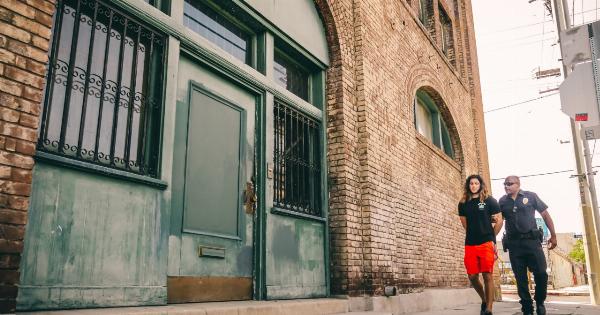Walking is a simple and effective way to stay active and improve your physical and mental health. It is an activity that people of all ages can participate in and enjoy.
However, there is a growing concern about the risk of arrest associated with walking, especially for certain individuals or in specific environments.
The criminalization of walking
In recent years, there have been numerous instances where individuals walking in public spaces have been arrested for seemingly innocuous reasons.
These incidents have raised questions about the criminalization of walking and the potential for biased enforcement, particularly among marginalized communities.
Racial profiling and discriminatory practices
One of the major concerns surrounding the risk of arrest while walking is racial profiling.
Studies have shown that individuals from minority backgrounds, particularly African Americans and Hispanics, are disproportionately targeted by law enforcement for pedestrian-related offenses. This has led to allegations of discriminatory practices and a lack of equal treatment under the law.
Strict enforcement and zero-tolerance policies
Many cities have implemented strict enforcement measures and zero-tolerance policies towards minor violations such as jaywalking or loitering.
While these policies are intended to maintain order and safety in public spaces, they often result in unnecessary arrests and the criminalization of otherwise harmless behavior. Critics argue that such enforcement measures disproportionately affect low-income communities and contribute to a cycle of poverty and criminalization.
The impact on mental health and well-being
The fear of arrest or harassment while walking can have a detrimental impact on the mental health and well-being of individuals.
The constant vigilance and anxiety associated with the risk of arrest can deter people from engaging in regular physical activity and restrict their access to public spaces. This has far-reaching consequences for public health and the overall quality of life in communities.
Addressing the issue
To address the risk of arrest associated with walking, it is crucial to adopt a more nuanced approach to law enforcement and public safety.
Instead of relying on heavy-handed tactics, communities can invest in community policing initiatives, where officers work collaboratively with residents to address concerns and build trust.
Additionally, educating both law enforcement officers and the general public about the consequences of racial profiling and discriminatory practices can help mitigate the risk of arrest while walking.
Establishing clear guidelines for enforcement, promoting fairness and transparency, and holding individuals accountable for misconduct are essential steps towards creating safer public spaces.
Advocating for change
Advocacy plays a vital role in challenging the criminalization of walking and pushing for systemic change.
Grassroots organizations and community activists can work together to raise awareness about the issue, engage with local policymakers, and advocate for policies that prioritize community well-being over punitive measures.
Conclusion
Walking should be an activity that promotes health, well-being, and community engagement. However, the risk of arrest associated with walking poses a significant barrier to these benefits, particularly for minority communities.
By addressing issues of racial profiling, strict enforcement, and discriminatory practices, we can create a more inclusive and equitable society where everyone can feel safe while enjoying the simple act of walking.






























